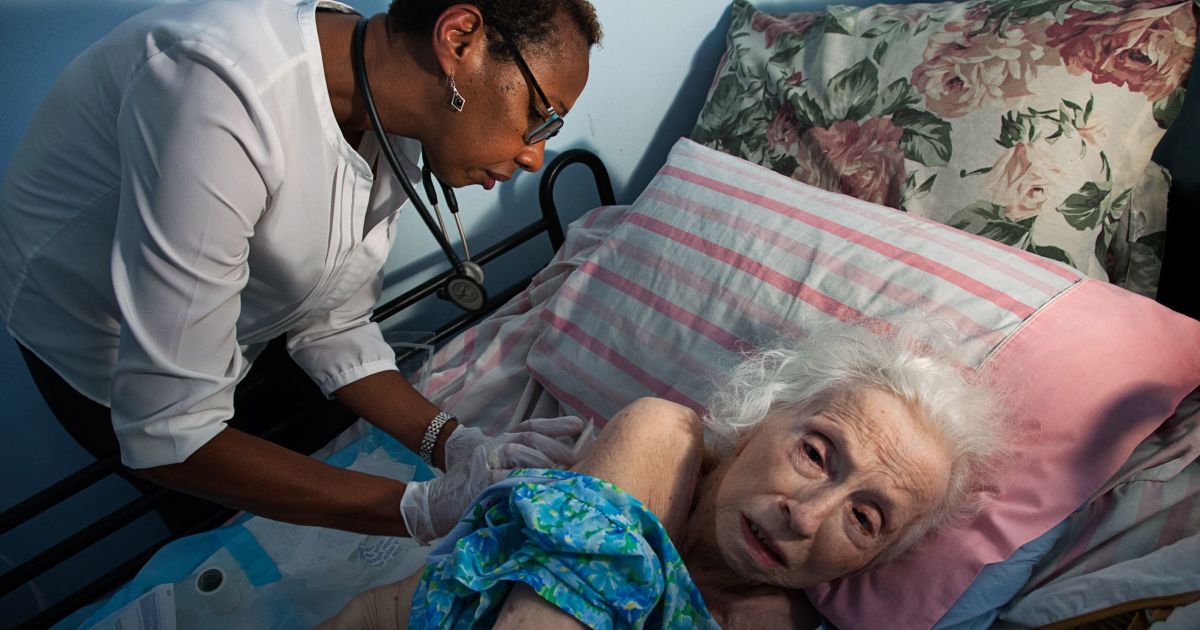If you only have time to read only one article today and/or watch one video, you may wish to make it this one. Thanks, Peter, for bringing this topic to our attention. As you correctly noted, it is “profoundly eye-opening, unsettling, yet so important.” This “elephant” is definitely worth talking about.
Tag Archives: physician experience
Into The Fishbowl
Are you interested in patient/provider partnerships (e.g., What they are? How they can be created? What barriers exist that impede their development?) If so, you may wish to join the Patent 4 Change Fishbowl session, which is being offered as part of Alberta Health Services’ Patient & Family Centred Care Week. The session will be held via phone and Internet and is open to all. Click here to read more about the Fishbowl session. Don’t miss out on what promises to be a very engaging experience. Register here.
How Do You Prepare for Death?
Meet Heather Meyerend, a hospice nurse who works in South Brooklyn. As such, Heather addresses people’s physical, emotional, psychological and spritual needs when they are most vulnerable.
She sees her work as preparing a patient for the voyage he is about to take, and accompanying him partway down the road. She, like most hospice workers, feels that it is a privilege to spend time with the dying, to be allowed into a person’s life and a family’s life when they are at their rawest and most vulnerable, and when they most need help. Some hospice workers believe that working with the dying is the closest you can get on earth to the presence of God.
Click here to continue reading.
Can A Hospital Tell A Doctor To Stop Talking About Abortion?

Diane Horvath-Cosper, an obstetrician and gynecologist, filed a complaint against a Washington, D.C., hospital after being instructed that she must stop saying that she does abortions. The hospital cites safety as the reason for their request but might other factors be involved? Read the article to find out.
If Doctors Are Kind to Each Other, Patients Benefit Too
 Negative relationships can exist between physicians and their presence can impact patient care. As Dr. Karthikesan explains, “The doctor-patient relationship paradigm depends closely on the doctor-doctor relationship. Bad and damaging cultures foster a hostile atmosphere that erodes trust, tarnishes good communication and promotes disrespect within the medical community. The role doctors play in harming each other ubiquitously affects the patient’s care, however unintentionally. The question becomes, how can the relationship between physicians be improved or as Karthikesan asks, “So what went wrong in the noblest of professions and how do we fix it?”
Negative relationships can exist between physicians and their presence can impact patient care. As Dr. Karthikesan explains, “The doctor-patient relationship paradigm depends closely on the doctor-doctor relationship. Bad and damaging cultures foster a hostile atmosphere that erodes trust, tarnishes good communication and promotes disrespect within the medical community. The role doctors play in harming each other ubiquitously affects the patient’s care, however unintentionally. The question becomes, how can the relationship between physicians be improved or as Karthikesan asks, “So what went wrong in the noblest of professions and how do we fix it?”
Click here to read the solutions proposed.
What About Physician Stories?
We often hear patient stories – how an experience affected the individual, lessons learned, fears faced, tears shed etc. However, it is less common for us to hear physician stories. What do doctors experience? How do they feel? What fears do they have? In a recent article found in The Globe and Mail, psychiatrist David Goldbloom shares with us what it is like to lose a patient to suicide.
As I listen to Stan’s message on my voice-mail, I organize some stuff on my desk. Stan’s recorded voice sounds uncharacteristically small and hesitant. He tells me that earlier this afternoon Daryl jumped to his death from his apartment balcony.
Everything is suddenly still.
I play the message several times, listening closely for something I may have missed, but my thoughts are inexorably drawn to my meeting with Daryl two days before, seeing his wrinkled, checkered shirt, his unshaved face, his slow smile.
I sit at my desk, staring out the window, trying to think of the orderly steps of notification and documentation dictated by our policy and procedures manual. Then, in the privacy and silence of my office, I hold my head in my hands and weep.
Click here to continue reading.
What it’s like … to be the forgotten physician – The Globe and Mail
It may be the last face a person sees before undergoing an operation and the first one a person sees when the operation is over. Yet, how many people remember the face, let alone the name of this person to whom this face belongs? Saroo Sharda shares her thoughts about what it is like to be the forgotten physician. Click here to read Saroo Sharda’s thoughts about what it is like to be the forgotten physician. This is part of a series that the Globe and Mail ran which looked at experiences in personal health.


